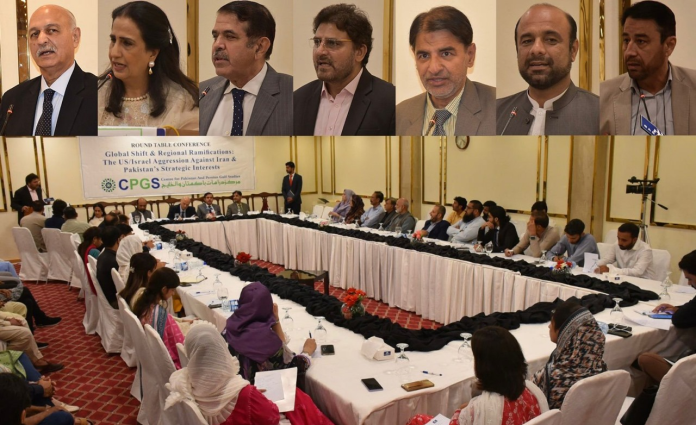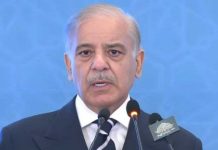ISLAMABAD: JULY 2 (DNA):In a conference organized by Center for Pakistan and Persian Gulf Studies (CPGS), Senator Mushahid Hussain Syed presented the 3-R’s concept. He argued that the global geopolitics was witnessing resurgence of Islamophobia which was spearheaded by racial supremacy of the West and the dominance of right-wing politics. He also elaborated that the rise of China in technological and AI domains had shifted the power center from the West to the East. These developments, he argued, had resulted in the retrenchment of the West and global order. Discussing the conflictual situations both in South Asia and the Middle East, Senator Mushahid observed that Pakistan’s retaliation against India unified the entire nation while Iran’s retaliatory strikes against Israel unified the entire Muslim world.
General (R) Samrez Salik, former DG Institute of Strategic Studies & Research Analysis (ISSRA) highlighted that the US and Israel miscalculated Iran’s response. They didn’t expect that the conflict with Iran would be prolonged, he noted. This indicated the transformation in international and regional systems where power and technology didn’t guarantee victory in the war, he concluded. Instead, as demonstrated in the Iran-Israel conflict, what matters was the war strategy, General Samraz analyzed.
Ambassador Naela Chohan discussed about the paradigm shift in geopolitics and geo-economics. She was critical of the current global order and mentioned that the regional and systemic mechanisms had minimized in settling merely the disputes. Hence, the so-called period of multilateralism was witnessing its decline, she said. Ambassador Chohan also praised the role of China as she put forward the concept of indivisible security and inclusive security adopted by China.
Professor Dr Manzoor Afridi, Dean Social Sciences at International Islamic University, boasted that the era of the US hegemony had come to an end. The US had htransformed from being a power broker to a mere mediator which was carrying out peace deals, Dr Afridi noted. He also criticized the role of international organizations and labelled the incompetency of the UN as it failed in resolving the conflicts and disputes.
Dr Syed Qandil Abbas, a renowned Middle Eastern expert and Associate Professor at Quaid e Azam University Islamabad, drew attention towards the foreign policy of Pakistan. He was of the view that Pakistan must take an active stand in support of Iran as it had taken for China on the basis of friendship and national interest. This would allow Pakistan to prevent the ‘cage-like’ situation due to the presence of hostile neighbours on its eastern side and volatile situation to the western border.
Earlier, Mr Nasir Abbas Sherazi, President of Centre for Pakistan and Persian Gulf Studies (CPGS), remarked that the situation in the aftermath of Iran-Israel war created the best opportunity for regional connectivity. It was the high time to implement IP gas pipeline and take a unified stand against Israeli designs in the region and beyond.

















